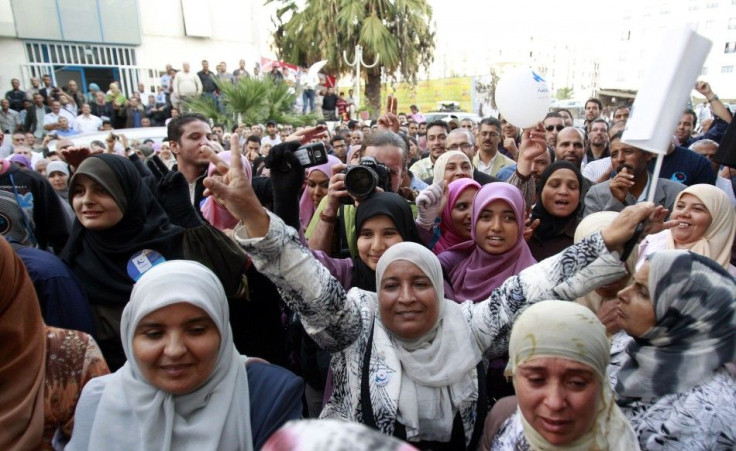Moderate Islamist Party Claims Triumph in Tunisia’s First Post-Revolt Election

Ennahda, a moderate Islamist party, claimed it has won the national election in Tunisia, the first such free poll in the wake of the “Arab Spring” revolution.
According to preliminary results, Ennahda will gain the most votes, but fall beneath scoring a majority. The principal rival party, the secular PDP, has conceded defeat.
Ennahda has vowed it will not establish an Islamic state, but rather a secular, multi-party democracy.
More than one hundred political parties participated, competing for 217 seats in the Constituent Assembly (CA).
Regardless of the outcome, the election was an extraordinary event, coming just nine months after the overthrow of long-time dictator, former President Zine al-Abidine Ben Ali.
According to electoral commission secretary-general Boubaker Bethabet, more than 90 percent of 4.1 million registered citizens had voted.
Unlike its larger neighbors, Libya and Egypt, the transition to democracy in Tunisia has been largely peaceful.
Observers from the European Union (EU) have hailed the democratic election and declared it clean, free and fair. U.S. President Barack Obama described the vote was an important step forward.
Now, the new assembly, which will have the largest proportion of women in any Arab government, will write a new constitution and select a prime minister.
Yusra Ghannouchi, a spokeswoman for Ennahda, told media: Tunisians have voted in fact for those parties that have been consistently part of the struggle for democracy and opposed to Ben Ali's dictatorship. At the forefront of those parties is Ennahda party, and we believe that, as expected, it has achieved the greatest share of the vote.
Manoubia Bouazizi, the mother of Mohamed Bouazizi, the young street vendor whose self-immolation last December is credited with starting the Tunisian revolution, told Reuters: Now I am happy that my son's death has given the chance to get beyond fear and injustice. I'm an optimist; I wish success for my country.
Under the regime of Ben Ali, Ennahda had been outlawed. During the revolt, the party’s leader Rached Ghannouchi returned home after two decades of exile in Britain.
Ghannouchi pledged that his party would respect democracy and modernity, adding they will find a balance between modernity and Islam.
© Copyright IBTimes 2024. All rights reserved.




















